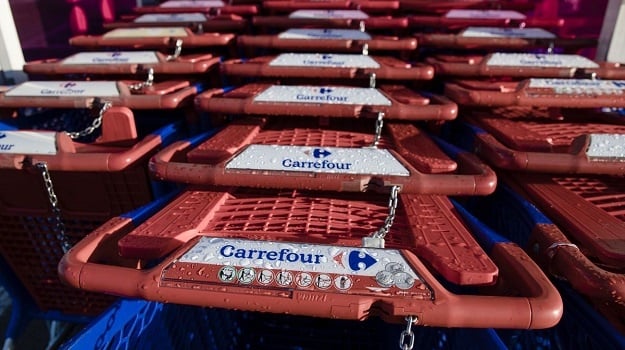
Will the Covid-19 crisis be the catalyst for a "retail apocalypse" for mid-sized independent retailers in South Africa?
It looks more and more likely, in the view of Jonathan Kingsley-Hall of JKH Business and Property Consulting.
He is part of a group of such retailers who formed the Mid-size Independent Retailer (MIR) Group, representing more than 50 brands, 2500 stores and 23 000 staff. It excludes sectors like franchises. They are predominantly family businesses that have been built up over decades and together are "larger" than a giant like Edcon and represent approximately 20% of the formal retail space.
This "missing middle" represented by MIR feels disenfranchised. They mostly exceed R300 million in annual turnover and do not qualify for the Covid-19 Loan Guarantee scheme. This group has been collectively and individually in negotiations with landlords since early April, pushing for a rental relief package until the end of the year.
"We have been desperately appealing to landlords to accept turnover-linked rentals for the duration of the Covid-19 pandemic - at least for six months - to avoid a jobs bloodbath and permanent closure of these businesses," Kingsley-Hall said on Thursday.
He explained that, despite low economic growth and constrained trading conditions in South Africa over the past decade, retail landlords have enjoyed above inflation increases to their rental income.
"Retailers have been 'price takers' because landlords have long been allowed to dictate that tenants report turnovers to landlords," says Kingsley-Hall.
"These turnover clauses are penned into lease agreements so that landlords can share in the upside - but not downside - when retailers perform well, and more importantly may be used to set the market rentals for lease renewals, which ultimately influence the profitability of retailers."
Thin margins
This lay the backdrop for SA's independent retailers trading with thinner and thinner profit margins, and with the added impact of the coronavirus lockdowns and trade restraints, have left extremely exposed and vulnerable.
"Landlords are only offering some relief for May and are fixated on collecting a percentage of rental for April, even though retailers had zero income from March 27th. They refuse to see that the danger lies in the year ahead," said Kingsley-Hall.
"The mid-size independent retailers do not want to trade recklessly at large operating losses because that is what would occur if normal lease obligations kick in from June. Many are considering business rescue as the only mechanism to protect their business."
He pointed out that in May 2020 shopping centre sales were between 45% and 55% of May last year, across the board.
"How long can family business run millions of losses? They are seriously on the edge," said Kingsley-Hall.
According to the Property Industry Group (PI Group), a collective of the major representative bodies for commercial real estate in SA, it has increased and extended its assistance and relief guideline for retail tenants - especially SMMEs - for the months of April, May and June, due to the impact of the extended lockdown period.
The PI Group proposes that small and micro retailers are given rental discounts of up to 100% for April, with further substantial rental discounts and interest-free rental deferrals for May and June respectively.
Its retail tenant assistance and relief guidelines of the PI Group exclude office, logistics, warehousing, industrial, healthcare, hospitality and other tenants.
"The property sector is by far SA's largest contributor to municipal rates and taxes. It is intertwined with the country's banking and financial sectors and significantly contributes to the pensions and savings of South Africans," Estienne de Klerk, spokesperson for the Property Industry Group and chair of the SA REIT Association, said in a statement.
"SA's property sector has voluntarily committed to the relief guidelines even though it hasn't received any sources of relief, and we're shouldering our share of the pain. We are paying our full obligations while giving retail tenants substantial discounts and we have gone as far as we can in assisting retail tenants with our updated proposal."
He advises retailers to apply to their landlords directly for assistance.
Future of retail
According to Howard Saunders, retail futurist and consultant at 22and5, retail really is the engine of the global economy and that engine was switched off overnight. The consequences of that are clearly catastrophic."
"For cities like Cape Town, Johannesburg and Durban - or for that matter Rome, New York or London - once you get past the tourist attractions, the energy and identity of a city emanates from its shops, restaurants, bars, hotels, galleries and venues," said Saunders.
That is why he foresees that cities, just the individual restaurants and shops that inhabit them, will need to learn how to rebuild and replace the lost visitors they worked so hard to earn.
"Customers are sure to be a more cautious species in the decade ahead. The threat of Covid-19 returning will see many of us refusing to board crowded trains and avoiding busy bars, restaurants and events," says.
"Slowly but surely we will grow used to living more cautious social lives as this becomes the new normal. Expecting business to bounce back overnight is just a fantasy."
According to the latest newsletter by the Cape Town City Improvement District (CCID), retailers in the Cape Town Central City have begun to "resuscitate and even reinvent" their businesses following the easing of lockdown regulations. Many, especially food outlets, changed the way they operated in a bid to stay afloat, like creating their own food delivery services or offering services online.
Even though many are operating again, they indicate that trading conditions remain very difficult and they are concerned about what the future holds.